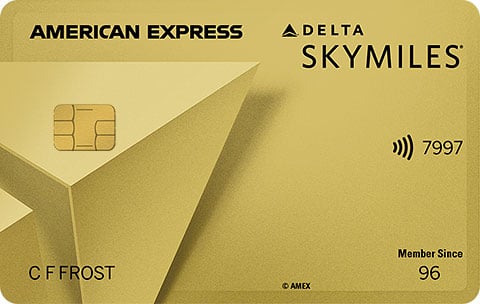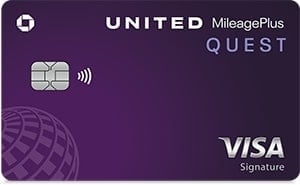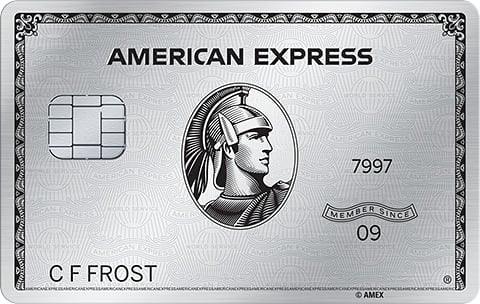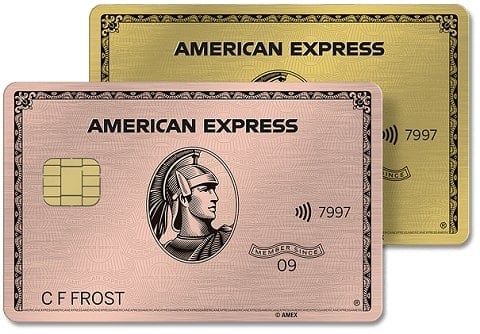Two One-Way Flights or One Round-Trip: Which Is Better?
There's little difference in domestic fares, but round-trip is often the right call for international flights.

Many or all of the products on this page are from partners who compensate us when you click to or take an action on their website, but this does not influence our evaluations or ratings. Our opinions are our own.
Booking a flight involves navigating a maze of decisions. Is it better to fly with a budget airline or full-service one? How about basic economy versus regular economy? And would you prefer pretzels or a cookie?
Choosing between a single round-trip or two one-way tickets is the most basic decision and — you might be surprised to learn — one of the more nuanced.
The cost between the two is usually the same for domestic flights but can vary significantly for international routes (assuming you're booking with cash rather than points and miles).
Given that airfare was 26% more expensive in January 2023 than January 2022, according to the latest consumer price index data, budget travelers need to save every penny they can.
In general, it can be more convenient to book a round-trip flight for a trip with specific start and end dates, but other considerations, such as cancellation policies and pricing, could make booking one-ways more appealing in some cases. And everything works differently for flights booked with miles.
Let’s break it down.
Domestic flights
For flights within the United States on the same airline, round-trip tickets almost always cost the same as two one-ways.
There’s one caveat here: Booking two one-way tickets between separate destination or arrival airports can, in some cases, save money (or cost more).
“Fares don’t have to be booked as returns,” says Laura Lindsay, travel trends expert at SkyScanner, a travel booking platform. “Look at flying out with one airline and back with another, or out of one airport and back into another to save money.”
Many online travel tools will automatically compare prices for these mismatched airline or airport itineraries and automatically include them in search results.
But it might be worth checking manually, especially for plans that involve different local airports or for airlines that don’t appear in search results, such as Southwest.
All that said, for domestic flights, the difference is almost always a wash.
Get the 'Cheat Codes' to Cheaper Travel
Unlocking the secret to saving a ton on travel is easier than you think. 📤 Our free newsletter shows you how in 5 min. or less.

International flights
For international tickets, the logic changes completely. Round-trip tickets are usually cheaper than one-ways, sometimes significantly so.
NerdWallet compared fares across multiple international routes and found that, typically, buying two one-way tickets costs 20% more than a single roundtrip.
To determine these differences, we compared routes between four U.S. airports and two airports in each destination region.
The effect is more pronounced when flying to some regions, such as Africa and Asia. That said, for flights between the U.S. and every region we looked at, it costs more to book two one-ways than a single round-trip.
In some circumstances, such as open-ended trips where you don’t know when you’ll be returning, one-way flights might still make the most sense. But for most international travel, round-trip fares are the clear winner.
Cards for booking flights with cash
If you plan to pay the cash fare for your ticket, consider booking with a card that will earn you points on travel purchases. Here are some options:
Travel booking benefits
• 5 points per dollar spent on travel (including flights) booked through Chase's travel portal.
• 2 points per dollar on other travel (including flights).
Annual fee: $95.
• 8 points per dollar on purchases through Chase's travel portal.
• 4 points per dollar on travel booked directly with airlines and hotels.
• 3 points per dollar spent on dining.
• 1 point per dollar on other travel.
Annual fee: $795.
• 2 miles per $1 on purchases made directly with Delta.
Annual fee: $0 intro for the first year, then $150.
Terms apply.
• 3 miles per $1 spent on United purchases.
Annual fee: $350.
Still not sure?
Are round-trip or one-way flights cheaper if booking with points?
What about the cost difference between one-way and round-trip fares when using points or miles?
Generally, airlines break these fares into one-way sections, meaning there is no meaningful difference between the two, in terms of cost. Yet a few caveats apply:
- Taxes on award flights can be higher when booking two one-ways. Delta Air Lines, for example, tends to charge more fees for flights originating in Europe.
- Some airlines, such as ANA, do not allow one-way award flights, period.
- Flights booked with credit card points using a travel portal (i.e. not transferred to an airline partner) follow the same rules as cash fares.
Annual fee
$895.
$95.
$325.
$595.
Earn rates
• 5 points per $1 on flights booked directly with airlines or through American Express, on up to $500,000 spent per year.
• 5 points per $1 on prepaid hotels booked through American Express.
• 1 point per $1 on other eligible purchases.
Terms apply.
• 10 ThankYou® points per $1 spent on hotels, car rentals and attractions booked through Citi's travel portal.
• 3 points per $1 on air travel and other hotel purchases.
• 3 points per $1 on supermarkets.
• 3 points per $1 on gas stations and EV charging stations.
• 3 points per $1 on restaurants.
• 1 point per $1 on all other purchases.
• 4 points per $1 at restaurants worldwide (on up to $50,000 in purchases per year).
• 4 points per $1 at U.S. supermarkets (on up to $25,000 in purchases per year).
• 3 points per $1 on flights booked directly with airlines or through American Express' travel portal.
• 2 points per $1 on prepaid hotels and other eligible purchases made through American Express' travel portal.
• 1 point per $1 on other eligible purchases.
Terms apply.
• 10 miles per $1 on eligible car rentals and hotels booked through AA.
• 4 miles per $1 on eligible American Airlines purchases (5 miles per $1 after spending $150,000 total on the card in a calendar year).
• 1 mile per $1 on everything else.
• 1 Loyalty Point per 1 eligible AAdvantage® mile earned from purchases.
Still not sure?
Other considerations
It’s also worth considering the impact of changes and cancellations on the two options.
Most airlines have eliminated change fees, making it easier to change and cancel both kinds of tickets. But canceling one leg of a round-trip ticket can sometimes be more complicated than canceling a one-way ticket.
In some cases, you might need to call customer service, instead of canceling online, to make sure the change doesn’t cancel your other flight segments as well.
And finally, there’s the question of simplicity.
Is the simplicity of having a single itinerary, managed by one round-trip confirmation code, worth these other trade-offs? This simplicity, paired with the fact that round-trip tickets are almost never more expensive than two one-ways, means that these fares make sense for most travelers.
To view rates and fees of the Delta SkyMiles® Gold American Express Card, see this page.
To view rates and fees of the American Express Platinum Card®, see this page.
To view rates and fees of the American Express® Gold Card, see this page.
How to maximize your rewards
You want a travel credit card that prioritizes what’s important to you. Here are some of the best travel credit cards of 2026:
- Flexibility, point transfers and a large bonus: Chase Sapphire Preferred® Card
- No annual fee: Wells Fargo Autograph® Card
- Flat-rate travel rewards: Capital One Venture Rewards Credit Card
- Bonus travel rewards and high-end perks: Chase Sapphire Reserve®
- Luxury perks: American Express Platinum Card®
- Business travelers: Ink Business Preferred® Credit Card
Article sources
NerdWallet writers are subject matter authorities who use primary,
trustworthy sources to inform their work, including peer-reviewed
studies, government websites, academic research and interviews with
industry experts. All content is fact-checked for accuracy, timeliness
and relevance. You can learn more about NerdWallet's high
standards for journalism by reading our
editorial guidelines.
Limited Time Only: Earn $1,000 Toward Travel!
Capital One Venture Rewards Credit Card 
Travel

For a limited time, the
Capital One Venture Rewards Credit Card is offering new cardholders an especially rich bonus: Enjoy $250 to use on Capital One Travel in your first cardholder year, plus earn 75,000 bonus miles once you spend $4,000 on purchases within the first 3 months from account opening - that’s equal to $1,000 in travel!
More like this
Related articles















